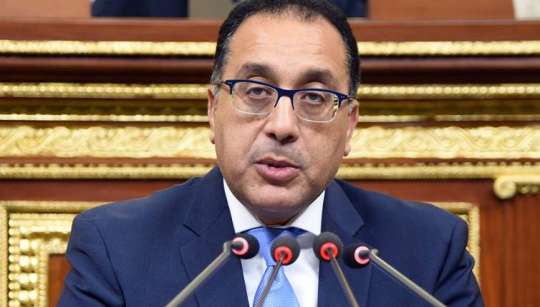Egyptian transport minister resigns after 20 are killed in train fire

At least 20 people were killed and dozens injured when a train crashed and caught fire at Cairo’s main train station on Wednesday, resulting in the resignation of Transport Minister Hesham Arafat.
The train engine slammed into the buffers at the end of the track at high speed at the main railway station in downtown Cairo on Wednesday before a fire broke out.
A security source told state-run Ahram news website that the crash caused explosion of the fuel tank which triggered the fire. Passengers carrying luggage ran for their lives as the blaze spread quickly, witnesses said.
At least 20 people were killed and more than 40 other injured in the accident.
“The explosion was horrible. I saw two men flying out of the train’s windows with their bodies on fire,” a passenger named Ali Kamal told Xinhua from the site.
It was difficult to rescue anyone, he added.
Dozens of ambulances and firefighters rushed to the scene and hosed down the charred wreckage of the train as security forces guarded the site.
The corpses were completely burned and most of the wounded are of second- or third-degree burn and in critical conditions, eyewitnesses and hospital sources said.
Prime Minister Mostafa Madbouly went to the crash site accompanied by Transport Minister Arafat who resigned hours later as well as Health Minister Hala Zayed and Social Solidarity Minister Ghada Wali.
“There will be no leniency or complacency in holding those responsible for the accident accountable,” Madbouly said at the station, stressing that “the era of keeping silent on those who fail to do their duties toward the Egyptian citizens is over”.
The cabinet also ordered financial compensation of 80,000 Egyptian pounds (about 4,570 U.S. dollars) for the family of the deceased or each person with a consequent total disability and 25,000 pounds (1,425 dollars) for each of the wounded.
Arafat announced last April a project to renovate the country’s old railway system by 2022, with a total cost of 55 billion Egyptian pounds (about 3.1 billion dollars).
Urgent investigations have been ordered into the incident.
“I have instructed the government to immediately rush to the accident scene to follow up the situation and hold those responsible accountable after the results of an accurate investigation,” Egyptian President Abdel-Fattah al-Sisi told a joint press conference with visiting Albanian President Ilir Meta.
Sisi said he also ordered a follow-up of the health conditions of the wounded and a provision of all necessary care for them and their families, offering sincere condolence to the families of the victims.
The prosecutor general’s office, meanwhile, said that the driver of the locomotive was arrested and was being investigated because the accident resulted from his recklessness.
Prosecutor-general Nabil Sadeq said that the driver left the locomotive with its engine on to check another locomotive in the opposite direction that was stuck with it.
“The driver left the compartment without taking the measures of turning off the engine to check the situation with the driver of the other locomotive,” said the prosecutor’s statement.
It explained that the driver of the opposite locomotive managed to disengage the two stuck locomotives while the other driver was out of the cab and the engine of his locomotive was on.
“This led the locomotive in question to move without its driver at a high speed until it hit the concrete buffer stop at the end of the track,” the statement explained.
A number of deadly train accidents have taken place in Egypt over the past few years, in which hundreds were killed and injured.
In August 2017, a train crash in the northern coastal province of Alexandria left at least 49 dead.
In February 2018, a collision of two trains in Beheira province north of Cairo killed 12 people.
The deadliest train accident in Egypt took place in Giza’s district of Ayyat in 2002, which killed 350 passengers when a fire broke out in a train coming from Upper Egypt, forcing passengers to jump for their lives.
Egypt has one of the oldest and largest rail networks in the region and basic safety standards for the railway have often been ignored.
GNA





